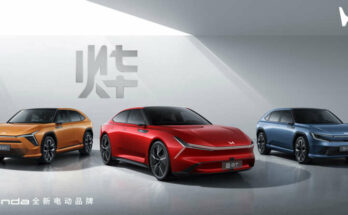Electric vehicles (EVs) are heralding a new era in the global automotive industry, with environmental consciousness and technological advancements driving their adoption. In Pakistan, where conventional automobiles are costly, and the infrastructure for EVs is still in its infancy, the transition to electric mobility presents both challenges and opportunities.
Let’s explore the future of electric vehicles in Pakistan considering the high price of conventional ICE (internal combustion engine) cars, the dearth of EV infrastructure, and the issue of expensive electricity.
High Cost of Conventional Automobiles
Pakistan has long grappled with the high cost of conventional automobiles, primarily due to import duties, taxes, and lack of genuine competition among local players. This cost burden often places new cars out of reach for many aspiring vehicle owners. However, the introduction and promotion of electric vehicles can potentially alleviate this issue.
Related: How Did China Come to Dominate the World of Electric Cars?
Opportunity: Government incentives and subsidies for EVs can make them more affordable for consumers. Reducing import duties and taxes on electric vehicle components can also stimulate local production of EVs, which could lead to competitive pricing.
Lack of EV Infrastructure
One of the significant challenges facing the adoption of electric vehicles in Pakistan is the lack of necessary infrastructure. This includes charging stations and battery-swapping facilities. Without a robust charging network and smooth uninterrupted electricity supply, potential EV owners are hesitant to make the switch from conventional vehicles.
Related: Are Electric Cars Viable for Pakistani Consumers?
Opportunity: Public-private partnerships can play a pivotal role in developing EV infrastructure. Government initiatives, such as tax breaks for setting up charging stations and offering land at reasonable rates, can encourage investment in charging infrastructure. Collaboration with international EV manufacturers for technology transfer and expertise can expedite the establishment of charging networks.
Super-Expensive Electricity Costs
The cost of electricity in Pakistan has been a topic of concern. High tariffs and energy shortages have hindered the widespread adoption of electric vehicles, as the perceived cost savings over gasoline or diesel-powered vehicles are diminished.
Related: How Viable is Car Financing Today?
Opportunity: To overcome this challenge, the government can consider offering special electricity rates for EV charging during non-peak hours. Additionally, the promotion of solar-powered charging stations can provide a sustainable and cost-effective charging solution.
Environmental Benefits
One of the most compelling reasons for transitioning to electric vehicles is their positive impact on the environment. Pakistan, like many other countries, faces challenges related to air quality and pollution. Electric vehicles produce zero tailpipe emissions, offering a cleaner alternative to internal combustion engine vehicles.
Related: Euro 2 in Pakistan, A Decade!
Opportunity: Raising awareness about the environmental benefits of EVs through public campaigns and educational programs can encourage consumers to make the switch.
Economic Benefits
The adoption of electric vehicles in Pakistan can also lead to economic benefits. It can stimulate job creation in the EV manufacturing and charging infrastructure sectors, reducing the country’s reliance on imported vehicles and fossil fuels.
Related: The Number of Togg EVs on Türkiye’s Roads Exceeded 2,000 Units
Opportunity: Incentivizing local manufacturing of EV components and batteries can lead to job opportunities and stimulate economic growth. Collaboration with international EV manufacturers for technology transfer can be a step in the right direction.
Conclusion
The future of electric vehicles in Pakistan holds promise, despite the challenges posed by the high cost of conventional automobiles, the lack of EV infrastructure, and expensive electricity. With the right policies, incentives, and investments, Pakistan can accelerate the transition to electric mobility. The government, private sector, and consumers all have roles to play in realizing the benefits of cleaner, more affordable, and sustainable transportation. By addressing these challenges proactively, Pakistan can embrace a greener future while promoting economic growth and energy independence.

I don’t eat, sleep or dream of cars, I am just someone who loves to see, think & write about cars. I love Ferrari in Pink but they won’t make one for me. I use X to write my full name, but that doesn’t mean I’m inspired by Altis X, in fact, my dad hates it 😀 Btw I’m an occasional writer so don’t expect too much from me 🙂




